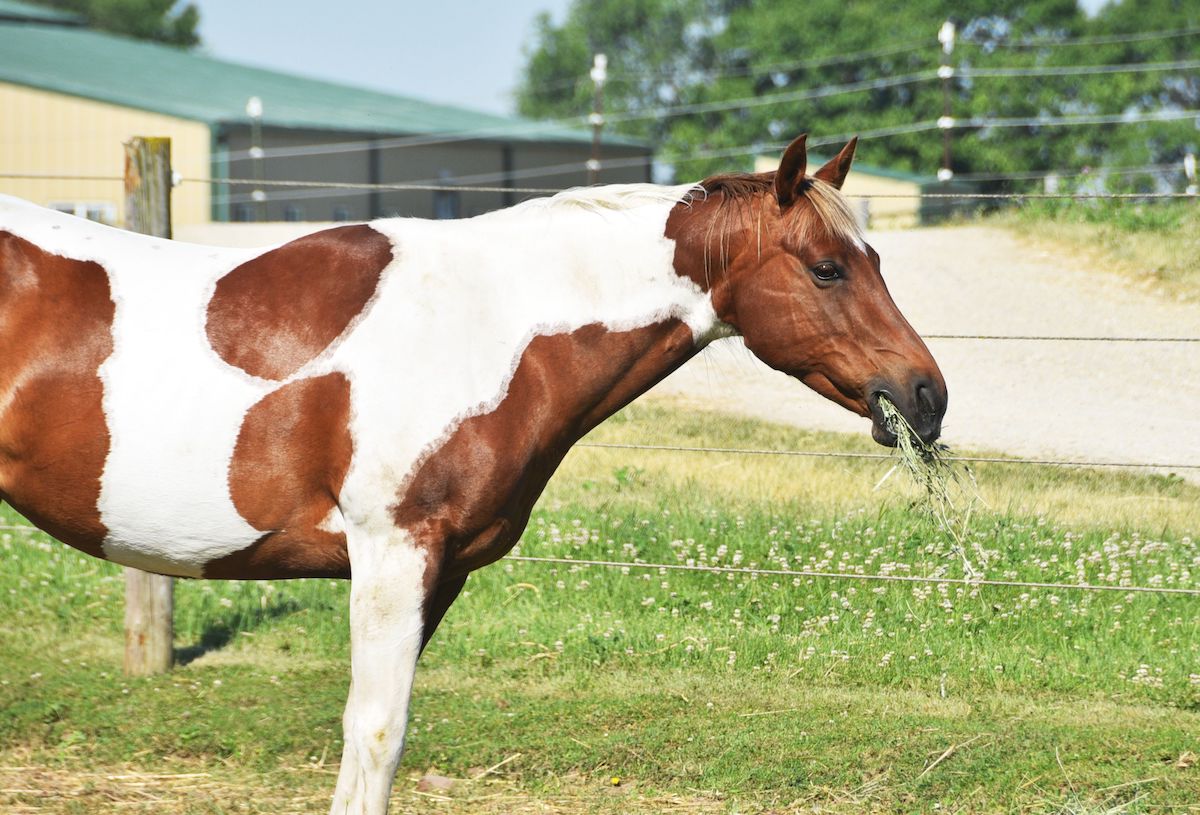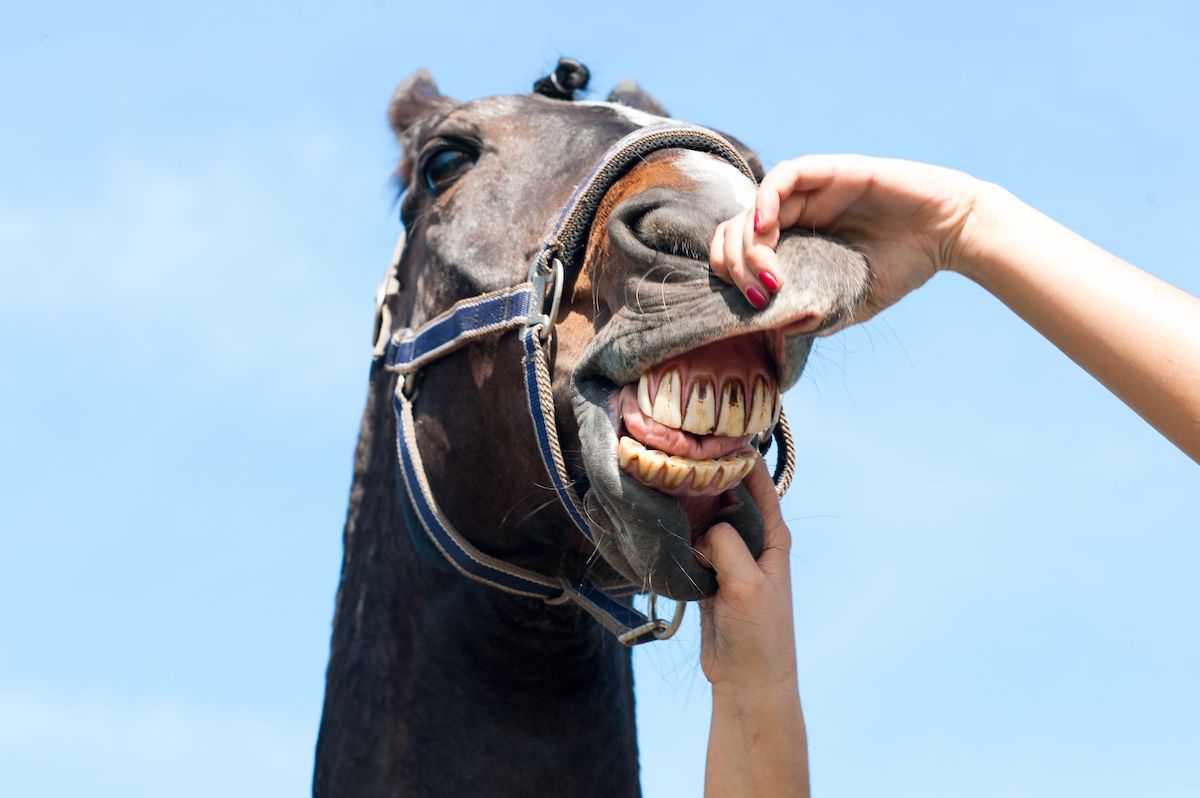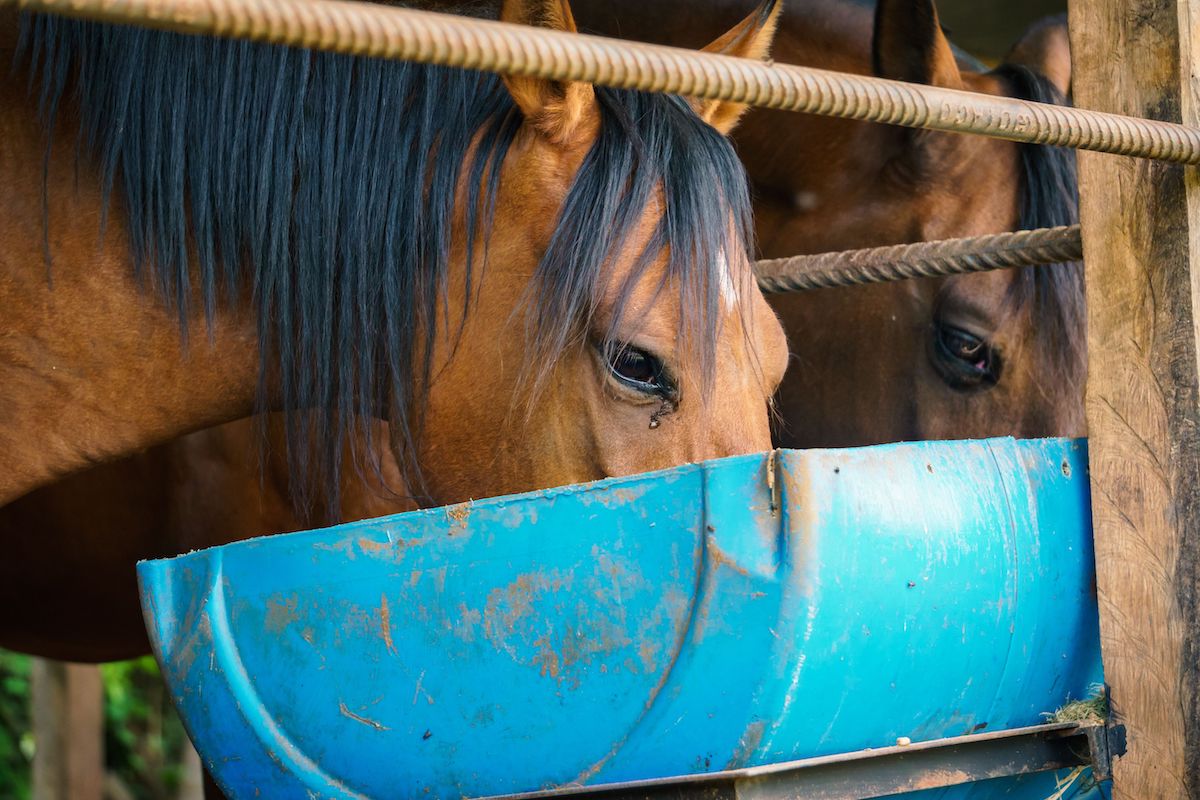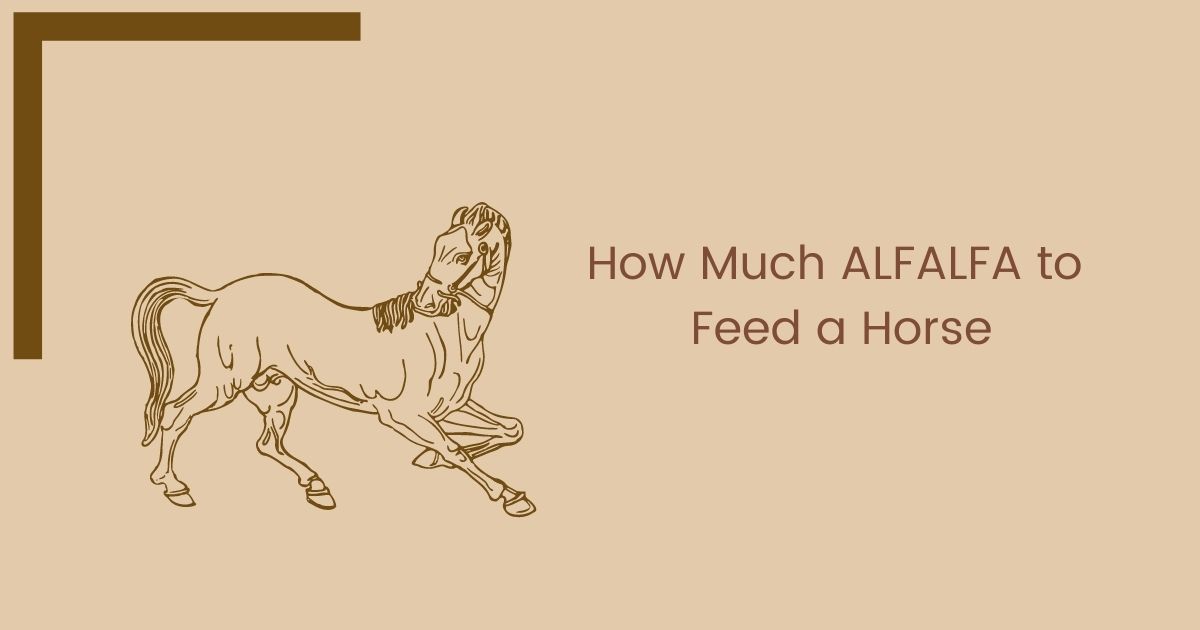One of the best feeds that you can give to your horse is Alfalfa. But, do you know how much Alfalfa to feed a horse? Giving your horse too much alfalfa has its consequences. Some horses are sensitive to this legume hay.
For these reasons, you need to have in-depth info about Alfalfa hay. So what do you need to know?
What is Alfalfa Hay?
If you are looking for an adequate source of protein for your horses, Alfalfa comes in handy. It belongs to the pea family, and some people call it lucerne. The proteins, fiber, and minerals that Alfalfa contains make it more beneficial to horses than grass hay.
Alfalfa also contains vitamins. The multiple nutrients of Alfalfa make it stand out from the rest of most perennial forages. For this reason, most people prefer Alfalfa for horses. Notably, horses require a lot of protein to develop their muscle tissues. Therefore, growing horses need feeds with 18% protein to grow and develop properly.
Young horses and broodmares require Alfalfa horse feed because of its high nutritional value. In addition, the high palatability of Alfalfa makes even the fussiest equine enjoy its meals. So, including this legume in your horse feeding chart is not optional.
Always cut Alfalfa when it is pre-bloom. At this stage, the legume contains the highest nutritional value. When it blooms, some nutrients go to its flowers. However, pre-bloom Alfalfa stores its nutrients on its stem and leaves.
Can Horses Eat Alfalfa?
Several myths exist regarding feeding Alfalfa to horses. Some people believe that the high protein in Alfalfa can cause joint problems among young horses. However, the fact is that low protein is a risk factor that can cause joint issues among horses.
Others believe that high calcium in Alfalfa can also cause joint problems. Contrary, calcium and other nutrients that Alfalfa contains enhance bone development, especially in younger horses.
Can high protein in Alfalfa cause kidney problems among horses? No. Excess protein becomes ammonia that horses urinate. So, if you suspect that your horse has taken extra protein, give it more water, forcing it to expel the excess nutrients in the body.
Other people believe that Alfalfa can cause allergies and heaves. However, any other type of hay, including Alpha hay, can cause allergic reactions to horses. In addition, molds that grow in hay can make a horse develop respiratory tract symptoms. However, molds not only grow on Alfalfa but also in other types of hay.
After debunking the listed myths, you can safely opt to feed Alfalfa hay to horses. If your horse requires extra calcium and proteins, provide Alfalfa. More importantly, sick and senior horses can benefit more from Alfalfa because it is easy to chew and digest.

Alfalfa for Horses Pros and Cons
Pros
- Alfalfa is highly palatable. If you give your horse grass hay, grass and Alfalfa mix, and all-Alfalfa hay, it is highly likely to opt for all-Alfalfa hay. In other words, horses love Alfalfa.
- The low indigestible fiber makes Alfalfa a better feed than other forms of hay. As a result, alfalfa has up to 25% more calories than grass hay.
- The high level of calcium and protein in Alfalfa makes it ideal for pregnant and lactating mares.
- Alfalfa detoxifies the blood, and it buffers the stomach acid of your horse.
Cons
- Insulin-resistant horses may be sensitive to Alfalfa. Even though there is a need for more research, the high level of sugar and starch stands as the cause of sensitivity.
- Alfalfa can cause an imbalanced ratio of calcium to phosphorous among horses. So, you need to use other supplements to balance the ratio.
- High calcium in Alfalfa can cause muscular problems among horses that carry out intense activities. In addition, high calcium causes hormonal shifts that make it hard for horses to draw calcium from their bones when they need it.
The Workings of the Equine Digestive System
Having an understanding of the digestive system of your horse helps you to interpret its wellness and performance. The knowledge also gives you an answer to the question, how often do you feed your horse?
The first part of the equine digestive system is its mouth. Every horse grasps its feeds using its lips, tongue, and teeth. Horses use their lips to select their feeds. When the feeds get in the mouth, it mixes with saliva to make an easy-to-swallow bolus.
From the mouth, the feeds get into the esophagus. A mature horse has a 1.5m long esophagus. If a horse swallows large lumps of feeds, it can choke because its esophagus has little reflux capacity. For this reason, always take care of your horse’s teeth.

After leaving the esophagus, the feeds get into its stomach. A mature horse has a 9-15 liters stomach. The small volume of the horse’s stomach makes it eat bits of roughages often. When the feeds get into the stomach, they mix with pepsin and hydrochloric acid that the stomach produces. Notably, feeds take a minimum of 15 minutes to pass through the stomach.
Afterward, the digester gets into the horse’s intestines. The intestines are 15-22m long. They also play a significant role in the digestive system of a horse. The intestines consist of duodenum, jejunum, and ileum. Most digestion takes place in the small and large intestines but not in the stomach.
From the small intestines, feeds get in the large intestines of the hindgut. The large intestines consist of the caecum, large colon, small colon, rectum, and anus. They are several meters long, and they handle bulk digestion. Instead of employing enzymes, the large intestines of a horse produce symbiotic bacteria that break down consumed feeds.
How Much and How Often Should Horses Eat?
You might be asking, how much hay does a horse eat? Well, let us dig deep and get an answer. Naturally, horses spend most of their time eating. However, keeping them in stables limits their eating frequency.
If you keep your horse in a stable, you should feed it with forage frequently. The move helps to reduce the risk of colic and gastric ulcers. Notably, a horse keeps on secreting gastric acid because of its natural continuous feeding frequency.
Therefore, you should add forage for your horse after every six hours. Given that it is difficult to maintain the routine at night, you should feed breakfast to your horse 12 hours after giving it dinner. So, your feeding program should ideally be at 6 am, 1 pm and 6 pm.
Notably, you should give your horse dry feed equivalent to 1.5-2% of its body weight. The rule is 1.5-2 kg feeds per 100 kg of a horse’s weight. To be more precise, you can give your horse 1.7 kg per 100 kg body weight.

The Right Way of Measuring Alfalfa Hay
You might also be asking about how much alfalfa to feed a horse. The amount of Alfalfa hay you can give to your horse depends on the other types of feed that the ration contains.
As a rule, the measure of Alfalfa hay should be one-half the total roughage that you give to your horse. However, you should analyze your Alfalfa hay to know how much grain supplement you should feed your horse.
How to Choose the Best Alfalfa Hay for Your Horse
You have to consider some factors when choosing Alfalfa hay for your horse. First, it should be free from dust and mold. Also, it should have good leaves to stem ratio because the leaves are nutritious while the stems are fibrous. Last, the hay should have a green color. The color shows that it has more leaves, and it did not weather or get rained on before putting it up.
Quality Alfalfa hay should be free from dead insects and animals. Also, it should not contain weeds and foreign objects. Some of the poisonous weeds in Alfalfa include ragwort, Johnson grass, and water hemlock, among others.
Buying Alfalfa from reputable vendors is one way of ensuring that it has a high quality. In addition, you can check for customer reviews of the vendor to assess their credibility.
The Difference Between Alfalfa Pellets and Cubes
- Alfalfa pellets are less dusty than Alfalfa cubes for horses.
- Horses find pellets more convenient to eat than cubes. However, always supervise your horse while it eats pellets. Regarding the cubes, you should break them into smaller pieces when feeding your horse.
- Alfalfa cubes provide your horse with more forage than pellets because pellets lack the long-stem fiber.
Is Alfalfa Good for Horses?
One of the most searched questions about horses is, can horses eat Alfalfa? You can answer the question from different perspectives. One of the perspectives is to analyze whether Alfalfa is suitable for horses. However, it is impossible to get standard findings from such analysis.
Notably, the need to feed Alfalfa to your horses depends on the horses’ level of exercise, other feeds, and overall health.
One of the reasons why Alfalfa is good for your horse is its high nutrient content and fiber. It is a feed that keeps your horse healthy, happy, and fit. Even though it is expensive, it gives you value for your money. Read our article and find out the 6 Best Weight Gain Supplements for Horses.
Underweight horses can benefit from feeding on Alfalfa. The high level of protein in Alfalfa makes it an ideal weight booster. Also, insulin-resistant horses can benefit from eating Alfalfa because of its low-sugar content. Last, hardworking horses and horses with muscle weakness can also benefit from feeding on Alfalfa.
However, Alfalfa is not suitable for less active horses because it makes them fat. Also, horses with kidney and liver problems should keep off from feeding on Alfalfa.
You might be wondering, does alfalfa make horses hot? Yes. It can make endurance horses hot. The heat causes a sweaty and thirsty horse. Also, the heat makes the horse urinate often. To combat the heat, you should mix Alfalfa with grass hay.
Our Take Home Message
Overall, Alfalfa is suitable for horses only when you feed them with the right quantity. However, its nutritional value makes it a must-to-have in every horse’s diet. Notably, the downsides of providing your horses with Alfalfa are navigable.
Importantly, you should understand the nutritional content of the feeds that you give to your horse. The step helps you ensure that you have not overfed or starved your horse. Also, the analysis helps you know the right measure of Alfalfa that you should feed your horse.
Even if you love your horse excessively, never overfeed it with Alfalfa. Overfeeding can cause diarrhea to your horse. Instead, use the right amounts or consult your veterinarian when having doubts.
